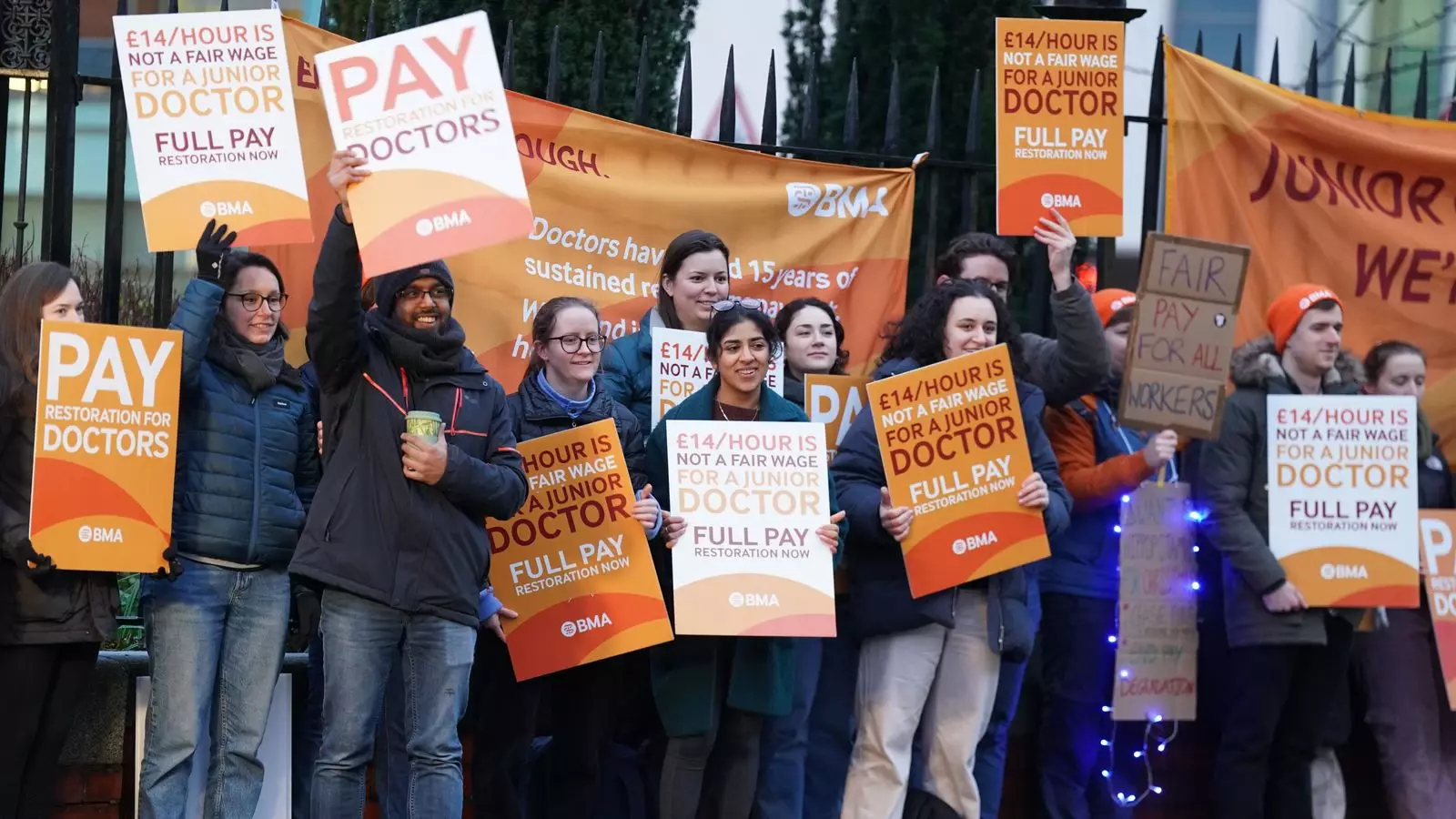The ongoing dispute between the British Medical Association (BMA) and the UK government has seen the National Health Service (NHS) become a battleground for conflicting interests. Health Secretary Victoria Atkins made it clear that the NHS does not solely belong to the striking junior doctors and cannot be switched on and off at their whim. This statement reflects the government’s determination to resist the pressure exerted by the BMA through their record-breaking six-day strike. While the BMA argues that derogation requests, which call for medics to leave picket lines due to safety concerns, are politically motivated, Ms. Atkins asserts that the NHS does not belong exclusively to the junior doctors’ committee.
Ms. Atkins expressed her willingness to start negotiations with the BMA within 20 minutes if the strikes were called off. She emphasized that the strikes needed to be called off for negotiations to happen because the NHS belongs to everyone. It is clear that the government wants to emphasize its ownership of the NHS and its role in making decisions about its functioning. The BMA, however, argues that it is Downing Street’s political choice not to negotiate while strikes are planned. They point out that the government has waived this principle for other professional groups in the past, such as barristers. The BMA stands ready to negotiate and urges the government to give them a credible offer to end the strikes immediately.
The government has attempted to appease junior doctors with an 8.8% pay rise last summer, coupled with an additional 3% offered during the last round of negotiations in 2019. However, the BMA rejected the 3% offer, claiming that it does not fully compensate for the real-term pay cut of nearly a quarter that junior doctors have experienced since 2008. The BMA’s demands include full pay restoration to reverse the pay cuts, a new pay mechanism to prevent future decreases, and a reformed pay review body to ensure the recruitment and retention of junior doctors. The financial demands of junior doctors pose a significant challenge for the government, especially as the UK enters an election year.
The strikes by junior doctors have had a substantial impact on NHS services, resulting in the cancellation or rescheduling of over one million appointments in the past year. With over 88,000 appointments cancelled during the previous set of strikes in December, the current strike is expected to have even more severe consequences. The strikes coincide with one of the busiest weeks of the year, and health officials have warned of increased pressure due to winter bugs and accumulated health problems from the Christmas break. Critical incidents have already been declared in certain hospitals, and emergency services are stretched thin.
The issue of derogation requests has further fueled the dispute between the BMA and NHS leaders. The BMA has accused health leaders of misusing the system and succumbing to political pressure in an attempt to undermine the strikes. It has been reported that NHS England and some trusts are withholding evidence of exhausting alternative staffing sources before recalling medics from the picket line. More than 20 derogation requests have been submitted for the current round of strikes, raising questions about the accountability and decision-making process within the NHS.
While the government has managed to resolve disputes with other professional groups, the prolonged battle with junior doctors continues to escalate. Despite the government’s claims of engaging in good faith negotiations, the situation remains at a stalemate. The NHS, as a vital public institution, should not be trapped in a never-ending battle for negotiations. A resolution must be reached to address the concerns of junior doctors and ensure the effective functioning of the NHS.
The ongoing dispute between the BMA and the UK government regarding the rights and demands of junior doctors has exposed deep divisions within the NHS. While the government insists on the ownership of the NHS and the need to call off strikes for negotiations to take place, the BMA accuses Downing Street of political maneuvering. The financial demands of junior doctors and the consequences of their strikes have put pressure on the government, particularly as the UK enters an election year. The battle over derogation requests further illustrates the lack of trust between the BMA and NHS leaders. With no signs of resolution in sight, it is imperative that both parties prioritize the interests of patients and work towards a fair and sustainable solution. Only then can the NHS truly fulfill its purpose of providing quality healthcare to the British public.


Leave a Reply